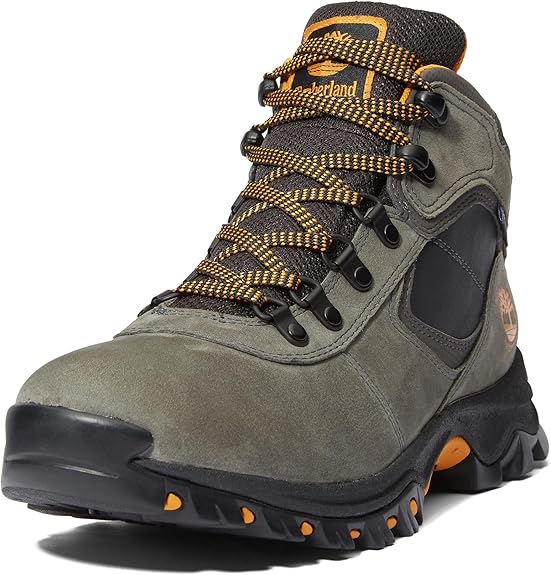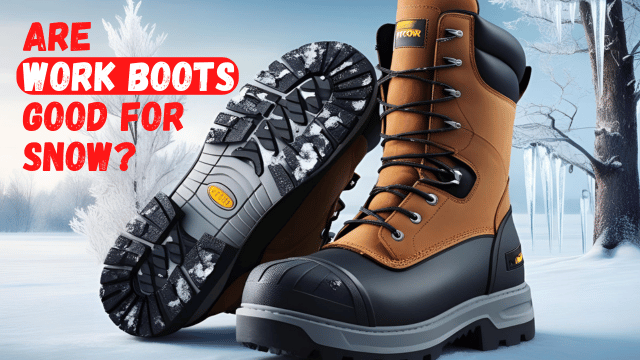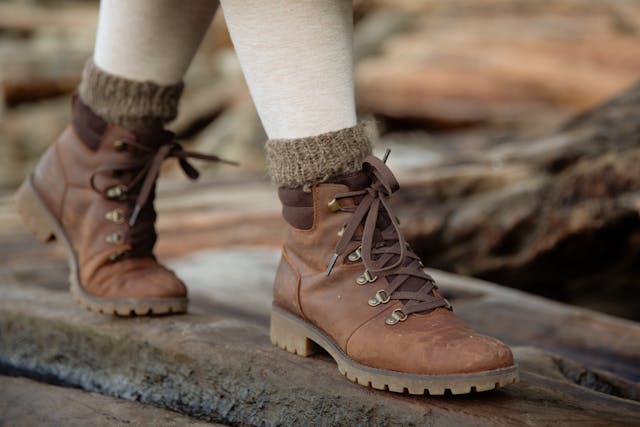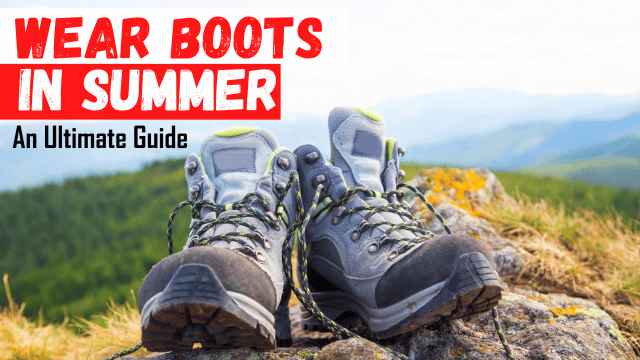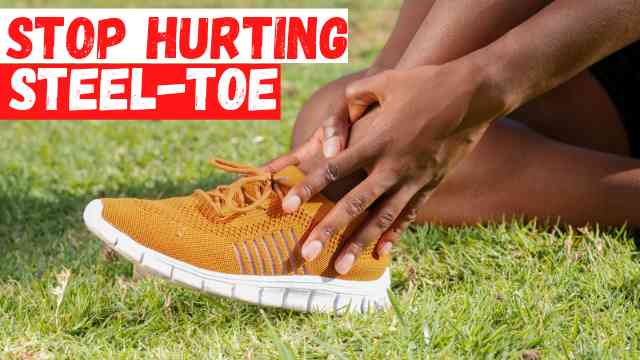Are Work Boots Good for Hiking? Understanding Pros and Cons
Work boots can be a practical choice for hiking, particularly if you need durability and support. They offer solid protection and grip, making them suitable for uneven land. Yet, you might wonder if they measure up to specialized hiking boots. Knowing the differences can help you decide if work boots meet your hiking needs.
While work boots are designed for safety and hard surfaces, hiking boots focus more on comfort and flexibility on the trail. You’ll find that both types of boots have their advantages and limitations. Understanding these can guide you in selecting the best footwear for your outdoor adventures.
Defining Work Boots and Hiking Boots

Work boots and hiking boots serve different purposes but both offer support and protection. It’s important to understand their specific features to help you choose the right footwear for your activities.
Characteristics of Work Boots
Work boots are designed for safety and durability in rugged job environments. They often have a steel toe, which protects your feet from heavy objects. The outsoles are typically made of hard rubber for grip and resistance to slips.
These boots are generally water-resistant or waterproof, keeping your feet dry in wet conditions. They may have insulation for warmth, making them suitable for cold workplaces. Some work boots also feature puncture-resistant materials to defend against sharp objects on the ground.
Overall, the focus is on functionality and protection, ensuring safety while working in demanding settings.
Characteristics of Hiking Boots
Hiking boots are built for comfort and stability on uneven terrain. They usually have a supportive structure that helps prevent ankle injuries. The soles are designed with deep tread patterns for better traction on trails.
Many hiking boots are also breathable, to keep your feet cool and dry during long hikes. Waterproof options are available for wet conditions. Another key feature is lightweight materials, which reduce fatigue during extended wear.
Hiking boots may have additional cushioning for comfort, especially when walking on hard surfaces. These elements combine to create performance footwear for various hiking challenges.
Comparison of Work Boots and Hiking Boots
When choosing the right footwear for hiking, it is essential to consider the differences between work boots and hiking boots. Each type is designed for specific purposes, which can impact your experience on the trails.
Design and Structure
Work boots are typically built for protection and stability in tough job environments. They often have a thicker sole for impact resistance and a higher ankle for support. The structure is designed to withstand heavy use, often with steel toes and reinforced areas.
Hiking boots, on the other hand, emphasize flexibility and traction on varied terrain. Their design includes features like a more breathable upper and a lightweight build. Hiking boots provide better grip on rocky or uneven surfaces, helping you maintain balance.
Material and Durability
Most work boots are made from tough materials like leather and synthetic fabrics. These materials are durable and can resist wear and tear from rough jobs. Many work boots also come with waterproof features, adding further protection in wet conditions.
Hiking boots use lighter materials to keep your feet agile. They often include mesh panels for breathability and are lighter than work boots. Durability is still a factor, but the focus is on creating footwear that can handle long walks rather than heavy impacts.
Comfort and Fit
Fit can make a big difference in your hiking experience. Work boots may not provide the right arch support for long hikes. They are often bulkier, which can lead to discomfort during extended use.
Hiking boots are designed for long-distance comfort. They usually feature padded collars and insoles for good support. Many hiking boots also offer a variety of width options to ensure a better fit for different foot shapes.
Advantages of Using Work Boots for Hiking

Using work boots for hiking can be a smart choice. Here are some advantages to consider:
- Durability: Work boots are designed to handle tough conditions. Their strong materials can withstand rough terrain.
- Support: These boots often have excellent ankle support. This helps prevent injuries when walking on uneven ground.
- Comfort: Many work boots come with cushioned insoles. This can make longer hikes more comfortable for your feet.
- Traction: The soles of work boots usually provide good grip. This is important for maintaining stability on slippery or rocky surfaces.
- Water Resistance: Many work boots are made to be water-resistant. This keeps your feet dry in wet conditions.
- Versatility: You can wear work boots for different activities. They can be used for hiking, work, or casual outings.
- Cost-Effective: Work boots can often be more affordable than specialized hiking boots. This is a plus if you’re on a budget.
Consider these points when deciding if work boots are right for your hiking trips. They can offer many benefits that enhance your experience outdoors.
Limitations and Considerations
There are important factors to think about when considering work boots for hiking. They might not always be the best choice for comfort and distance. Here are two crucial points to weigh.
Potential Discomfort and Blister Risk
Work boots are often heavier than traditional hiking shoes. This added weight can cause fatigue during hikes. You may also experience discomfort around the ankles and feet.
The fit of the boots is essential. If they are too tight or too loose, you can develop blisters easily. Blisters can make hiking unpleasant and may even force you to cut your hike short.
To minimize blister risks, wear good-quality socks. Choose moisture-wicking options to keep your feet dry. Always break in your boots before heading out on longer trails.
Short and Long Distance Hiking Differences
When it comes to short hikes, work boots may serve well. They provide good support on firm trails. For longer hikes, your needs change.
Long hikes need more flexibility and cushioning. Work boots may not offer the same comfort as dedicated hiking shoes over extended distances.
Consider the terrain, too. If your hike involves rocky paths or steep inclines, specialized hiking footwear is likely a better choice. You can enhance your experience by selecting footwear that matches your hiking distance and conditions.
Proper Care and Maintenance
Taking care of your work boots is crucial for their lifespan and performance. Proper cleaning and treatment can keep them in good shape for hiking and other activities.
Cleaning and Drying Techniques
Regular cleaning helps remove dirt, mud, and other debris that can harm your boots. Start by using a soft brush to scrub off loose dirt. For tougher stains, use a damp cloth with mild soap.
After cleaning, it’s essential to dry your boots properly. Avoid direct heat sources, like radiators or sunlight, as they can damage the materials. Instead, let your boots air dry in a cool, shaded area. Stuffing them with newspaper can help absorb moisture and maintain their shape.
Leather Treatment and Waterproofing
If your work boots are made of leather, regular treatment is important. Apply a leather conditioner every few months to keep the material supple and prevent cracking. Look for a product that contains natural oils for the best results.
For waterproofing, choose a spray or wax that is designed for your boots. Apply the product evenly and allow it to dry fully before using the boots. Regular waterproofing can protect your boots from water damage and keep your feet dry during hikes.
Choosing the Right Boots for Your Needs
Timberland Men’s Mt. Maddsen Mid Waterproof Boot
Specifications:
- Sole Material: Rubber
- Footbed: Anti Fatigue Removable
- Shaft: Ankle Size
Assessing the Terrain
The type of terrain you plan to hike on plays a major role in choosing the right footwear. If your hike involves rough, rocky, or uneven ground, work boots may not provide the flexibility and grip needed for safe footing. Specialized hiking boots are designed with aggressive tread patterns for better traction on steep and loose trails.
On the other hand, if your hike consists of relatively flat, well-maintained paths, work boots can serve as a durable alternative. They offer excellent protection against sharp objects and rough surfaces. Consider the type of hike you’ll be taking to determine if work boots or hiking boots are the better fit.
Personal Fit and Preferences
The comfort of your boots greatly affects your hiking experience. Work boots are built for stability and durability, but they may not always provide the best fit for long-distance walking. Their stiff soles and heavy materials can lead to fatigue over time.
Hiking boots are designed to support natural foot movement and often come in various widths to accommodate different foot shapes. If you have specific foot conditions, such as high arches or flat feet, choosing boots with proper arch support is essential.
When deciding between work boots and hiking boots, consider how each feels on your feet. Try them on with hiking socks and walk around to gauge comfort and fit before heading out on the trail.
Conclusion
Work boots can be a practical choice for hiking in certain situations, offering durability, protection, and support. However, they may not be the best option for long-distance or technical hikes due to their weight and rigidity.
Hiking boots are specifically designed for outdoor adventures, providing comfort, flexibility, and traction suited for trails. Choosing the right footwear depends on your hiking conditions, personal comfort, and overall needs. By understanding the strengths and limitations of each type of boot, you can make an informed decision and ensure a comfortable hiking experience.
